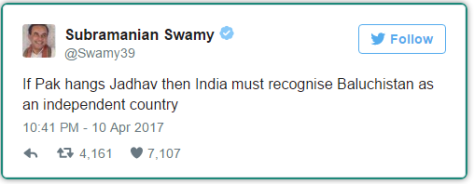By Dr. Ahmed Makhdoom
… Indeed, onward they marched from their beloved Motherland, Balochistan, to the Sacred ‘n Sanctified, hallowed and noble Land of Sindh! And, they marched on foot – men, women and children – some even without shoes or slippers! They marched in a glorious Caravan – the 25 families of missing sons of Balochisatn and finally reached Karachi, the worthy Capital of Sindh, on Friday 22nd November, 2013, covering 780 kilometres of an inhospitable landscape of Balochistan and Sindh!
This march of the Balochs for the Freedom and safe return home of their sons, brothers, fathers, uncles and even grandfathers, who had gone missing since their abduction by the barbarians Forces and venomous Intelligence Services will go down in the annals of bravado, courage and determination in the History of Mankind!
These families spent cold and freezing nights on roadsides shivering and just getting warmth from each other’s hugs and embraces. They spent days striding forward and carrying on – onward, forward and ahead through the : the journey, it seems, only hardened their commitment to remain steadfast in their cause.
These valiant and verdant Baloch families have pitched their tents in Karachi. However, their struggle for justice and peaceful protests against tyranny, terror and torment, is far from over. It will continue peacefully, according to the families spokesman, “until their beloved sons, fathers, brothers and grandfathers return.”
The Voice for Baloch Missing Persons (VBMP) long march reached Karachi from Quetta on Friday 22nd November, 2013, after walking for 27 days. VBMP Long March culminates in Karachi, the struggle against abductions to continue: Qadeer Baloch. Read more here:
Brave Baloch families reached the Karachi Press Club, exhausted! Their shared with Press and all Sindhis who welcomed them the macabre tales of intimidation, threats and violence of the Intelligence Agencies. Families all are full of zeal, confidence and commitment to continuing their resistance against the repression.
Those who watched a Balochi language private TV channel saw a huge mass of around 20,000 people from 25 Baloch families participating in the Voice for Baloch Missing Persons protest rally in Karachi on Friday. Apart from Baloch activists, it is indeed, very heartening and inspiring to know, that a large number of Sindhi and other human rights and political activists also came to support the Baloch in their hour of pain and suffering.
750 kms March of missing Baloch’s kin ends at Karachi, Sindh. Verdant and veritable sons and daughters of Mother Sindh welcomed their brave Baloch brothers and sisters with great honour and dignity and presented gifts to the families with traditional honour of Sindhi Ajrak and Topee (cap) and showered them with flowers and garlands.
We raise our voice to condemn the barbaric behaviour of the agencies by continually abducting the innocent, peace-loving and simple sons of Balochistan! We appeal, plead and urge the United Nations, International and Asian Human Rights Organisations, the Super Power Nations of the World and the International Courts of Justice to please take note and Save Baloch people, Save Balochistan and STOP genocide being perpetrated by the savages of the failed state!
Sindh has always been a hospitable, welcoming and gracious Nation! The valiant, veritable and verdant sons and daughters of grand, great and glorious Mother Sindh must open their arms, hearts and souls to welcome these tortured, troubled and tormented Baloch families who are now camped in Karachi! Sindhi MUST provide sustenance, shelter, clothing and ALL the Support, Help and Assistance that they need.
Balochistan, we Love you! Long Live Balochistan! Long Live Sindh!
Courtesy: via Sindhi e-lists/ e-groups, and facebook, 24th November, 2013.
– – – – – – – – –
For more details » BBC urdu
http://www.bbc.co.uk/urdu/pakistan/2013/11/131124_baat_se_baat_rh.shtml


